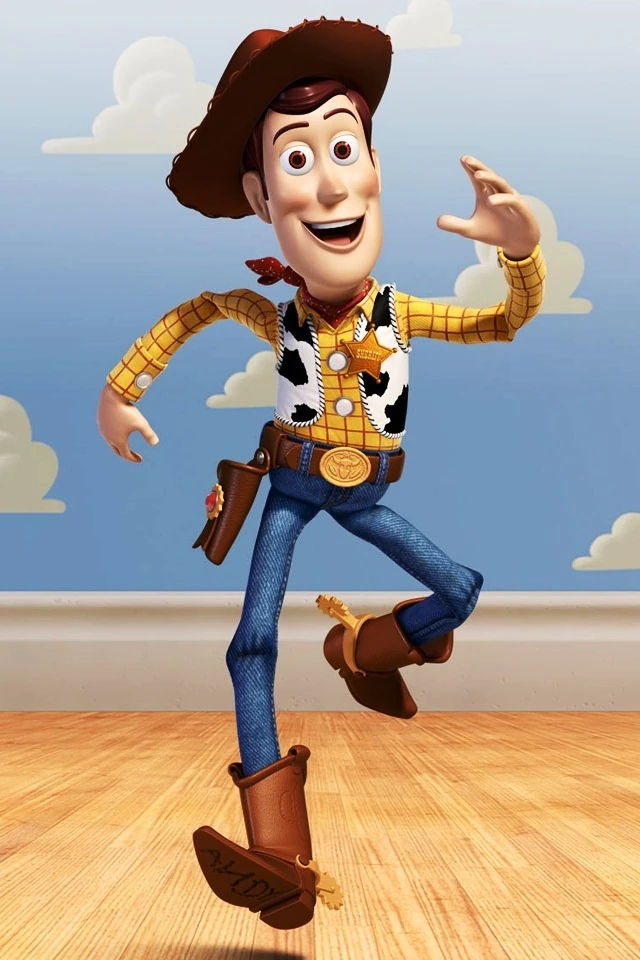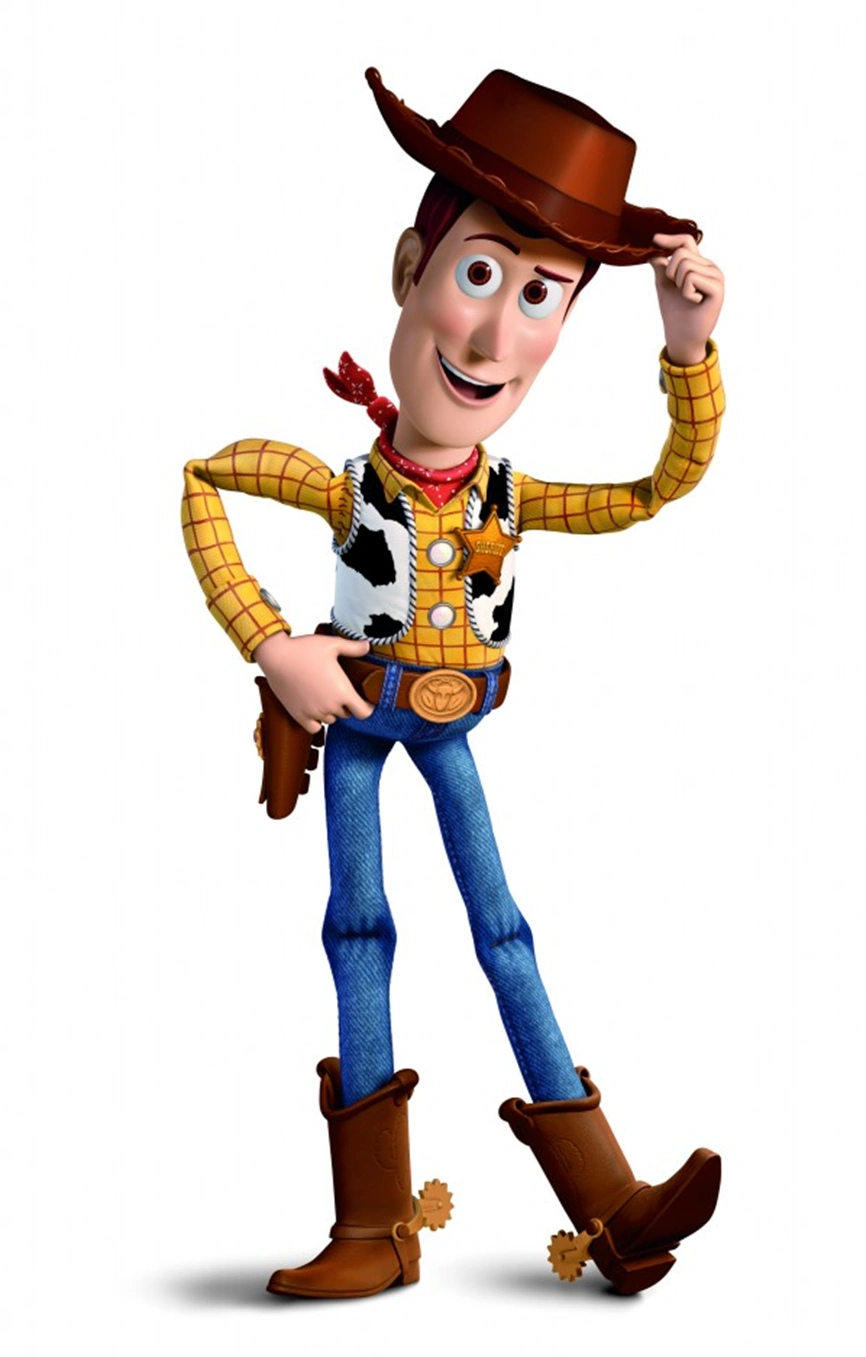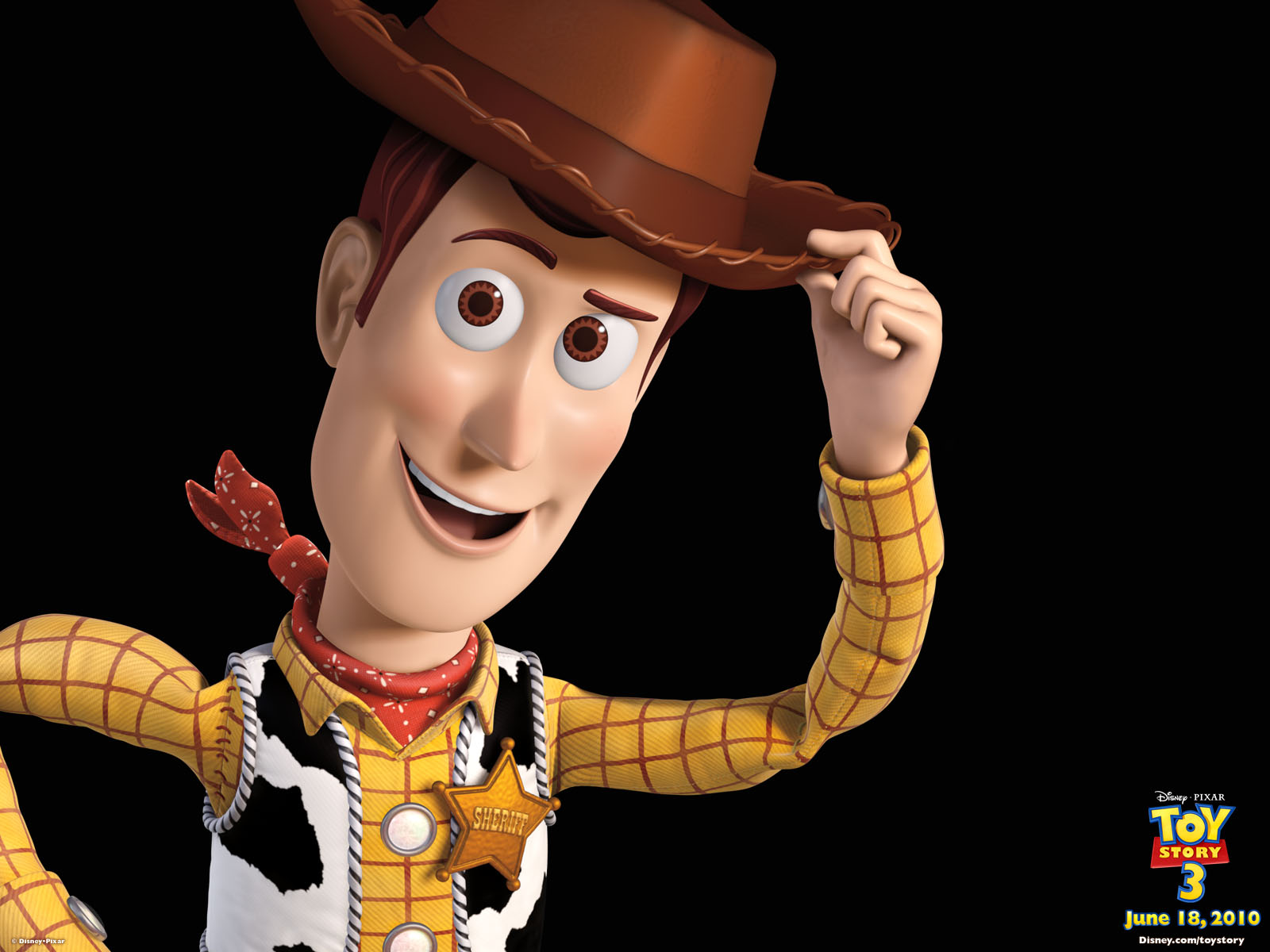Table of Contents
- The Genesis of an Icon: Sheriff Woody's Origins
- Woody's Enduring Character Arc: From Jealousy to Leadership
- Tom Hanks: The Voice Behind the Legend
- Woody's Pivotal Role in the Toy Story Saga
- Cultural Impact and Legacy: More Than Just a Toy
- The Evolution of Woody: From Film to Franchise
- Why Woody Resonates: Themes of Loyalty, Change, and Friendship
- The Enduring Appeal of Sheriff Woody Pride
The Genesis of an Icon: Sheriff Woody's Origins
In the vast universe of animated characters, few command the immediate recognition and affection that Sheriff Woody Pride does. Sheriff Woody Pride is the protagonist of the Disney Pixar *Toy Story* franchise, a character who burst onto the scene in 1995 and irrevocably changed the landscape of animation. He wasn't just another cartoon figure; he was a fully realized personality, a cowboy doll (though the preferred term is action figure) with hopes, fears, and an unwavering sense of duty.
Woody's creation was a collaborative masterpiece, born from the innovative minds at Pixar Animation Studios. Designed by Bud Luckey, with significant input from director John Lasseter and the creative team, Woody was envisioned as the anchor of a revolutionary computer-animated film. His design, a classic pull-string cowboy doll, immediately evoked a sense of nostalgia and familiarity, making him instantly relatable to audiences of all ages. This foundational design choice was crucial in establishing his authenticity as a toy, setting the stage for the emotional depth that would follow.
His initial concept underwent several transformations, including a darker, more cynical portrayal before settling on the warm, if sometimes insecure, leader we know today. This evolution highlights the meticulous character development that went into crafting Woody, ensuring he was not merely a caricature but a complex individual capable of growth and learning. The decision to make him a sheriff, complete with a badge and a strong moral compass, further cemented his role as the protector and guide of Andy's toy family.
The Birth of a Cowboy Doll (1995)
Woody first appeared in the original *Toy Story* film, released in 1995, marking a monumental shift in cinematic history as the first feature-length film entirely rendered using computer-generated imagery. From the moment he appeared on screen, it was clear he was destined for greatness. He was once the favorite toy of a boy named Andy, a cherished companion who held a special place at the top of the toy hierarchy. This position, however, was not without its challenges, especially with the arrival of new toys.
The film immediately established Woody's core identity: a leader among toys, deeply devoted to his owner, Andy. His iconic pull-string catchphrases, like "There's a snake in my boot!" and "Reach for the sky!", quickly became synonymous with his character. But beyond these playful elements, Woody was portrayed with genuine emotional vulnerability. His initial fear of being replaced, a very human emotion, made him incredibly relatable despite his inanimate nature. This blend of classic toy charm and profound emotional depth set the stage for a character who would resonate for decades.
Woody's Enduring Character Arc: From Jealousy to Leadership
Woody's journey throughout the *Toy Story* franchise is a masterclass in character development. In the beginning of *Toy Story*, he is presented as the undisputed leader of Andy's toys, confident in his position as Andy's favorite. However, this confidence is severely tested with the arrival of Buzz Lightyear, a state-of-the-art action figure who quickly captures Andy's attention. Woody's initial reaction is one of jealousy and insecurity, leading him to make questionable decisions that put both himself and Buzz in peril.
This early conflict is crucial, as it lays the groundwork for Woody's most significant transformation. Through adversity and shared experiences, Woody and Buzz forge an unbreakable bond, moving from rivals to inseparable best friends. This arc teaches valuable lessons about acceptance, friendship, and overcoming one's own insecurities for the greater good. Woody learns that true leadership isn't about maintaining a position of power, but about caring for others and ensuring the well-being of the entire group.
As the series progresses, Woody's character deepens further. He consistently prioritizes the happiness of his friends and Andy, even when it means making personal sacrifices. He grapples with the existential questions of a toy's purpose, the pain of being outgrown, and the ultimate necessity of letting go. His evolution from a self-centered toy to a selfless, empathetic leader is one of the most compelling aspects of the entire franchise, making him a character that audiences can grow with and learn from.
The Heart of Andy's Room
As the toys' leader, and despite his fears to the contrary, he's always been Andy's favorite—no matter what new toy enters the scene. This unwavering favoritism, though challenged, forms the core of Woody's identity for much of the series. His primary purpose revolves around Andy's happiness, and he tirelessly works to maintain the order and harmony within Andy's room. He organizes meetings, mediates disputes, and strategizes ways to ensure the toys are always there for Andy.
Woody embodies the quintessential childhood companion – a toy that is not just an object, but a confidant, a protector, and a silent witness to a child's growth. His dedication to Andy is absolute, reflecting the deep, often unspoken bond between a child and their most cherished possessions. This emotional resonance is a significant reason why Woody, and the *Toy Story* films as a whole, have such a lasting impact on viewers. He represents the comfort and reliability of childhood, a constant presence in a world of change.
Tom Hanks: The Voice Behind the Legend
It is impossible to discuss Sheriff Woody Pride without acknowledging the phenomenal talent that brings him to life: Tom Hanks. He is voiced by Tom Hanks, and his performance is nothing short of iconic. Hanks's distinctive voice, imbued with warmth, sincerity, and a touch of everyman charm, perfectly captures Woody's complex personality. He delivers Woody's lines with a nuanced range, from his confident declarations to his moments of profound vulnerability and despair.
Hanks's voice acting elevates Woody from a mere animated character to a fully believable entity. His ability to convey deep emotion through vocal inflections alone is remarkable. When Woody is joyful, Hanks's voice sparkles with genuine glee. When Woody is fearful or heartbroken, Hanks's voice cracks with raw emotion, making audiences feel every pang of his despair. This masterful performance is a cornerstone of the *Toy Story* franchise's success, making Woody feel incredibly real and relatable.
The collaboration between Hanks and Pixar's animators is a testament to the power of synergy in filmmaking. Animators often drew inspiration from Hanks's recording sessions, incorporating his subtle gestures and expressions into Woody's physical performance. This symbiotic relationship resulted in a character that is not only visually expressive but also emotionally resonant, a true testament to the artistry involved in bringing Woody to the screen. Hanks's commitment to the role across four feature films and numerous shorts has ensured a consistent and beloved portrayal of Sheriff Woody Pride for over two decades.
Woody's Pivotal Role in the Toy Story Saga
Woody is one of the main protagonists, alongside Buzz Lightyear, in the *Toy Story* films. He is the main character of the films, and a supporting character in the *Toy Story* short films and other media. His role extends far beyond merely being Andy's favorite toy; he is the moral compass, the strategist, and often the driving force behind the toys' adventures and dilemmas. Each film in the franchise presents Woody with a new challenge that tests his leadership, loyalty, and understanding of his purpose.
In *Toy Story 2*, Woody faces an identity crisis when he discovers his past as a valuable collectible, forcing him to choose between a life of museum preservation and the uncertain future with Andy. His decision to return to Andy, and rescue his friends, reaffirms his core values. In *Toy Story 3*, he leads the toys through the harrowing experience of being donated to a daycare, where his unwavering determination to get them back to Andy is tested to its limits. This film culminates in a poignant farewell to Andy, a moment that defines Woody's selfless love and understanding of a toy's ultimate fate.
Even in *Toy Story 4*, Woody's journey continues, as he grapples with finding a new purpose after Andy has grown up and passed him on to Bonnie. He dedicates himself to ensuring Bonnie's happiness, even if it means stepping out of his comfort zone and embracing a new path. This continuous evolution and his central role in every major plot point underscore his indispensable position within the narrative. He is the glue that holds the toy family together, and his decisions often dictate the course of their collective destiny.
The Dependable Leader
As the dependable leader, he ensures that no toy gets left behind. This mantra is a recurring theme throughout the series, highlighting Woody's profound sense of responsibility. Whether it's rescuing Buzz from Sid's house, saving Jessie and Bullseye from Al, or orchestrating an escape from Sunnyside Daycare, Woody's leadership is characterized by his unwavering commitment to his friends' safety and well-being. He is resourceful, courageous, and always puts the needs of the group before his own.
His leadership style is not without its flaws; he can be stubborn, anxious, and sometimes prone to rash decisions driven by his deep-seated fears. However, it is precisely these imperfections that make him so human and relatable. He learns from his mistakes, adapts to new situations, and consistently strives to be a better leader and friend. This dynamic portrayal of leadership, showing both its triumphs and its challenges, makes Woody an inspirational figure for audiences of all ages.
Cultural Impact and Legacy: More Than Just a Toy
Woody is one of the most iconic characters from Disney and Pixar’s *Toy Story* franchise. His impact extends far beyond the realm of animated films, cementing his place in popular culture as a symbol of childhood, friendship, and the passage of time. The *Toy Story* films, with Woody at their core, revolutionized animation and storytelling, proving that computer-generated characters could evoke deep emotional responses from audiences.
The character of Sheriff Woody has permeated various forms of media and merchandise, becoming a global phenomenon. From toys and video games to theme park attractions and clothing, Woody's image is ubiquitous. He represents the nostalgic ideal of a beloved childhood toy, a tangible connection to simpler times and innocent play. His adventures resonate with both children, who see themselves in Andy's relationship with his toys, and adults, who reflect on their own experiences of growing up and letting go.
The themes explored through Woody's character – loyalty, friendship, the fear of abandonment, and the acceptance of change – are universal. They speak to the human condition, making the *Toy Story* films, and Woody in particular, timeless classics. His enduring appeal lies in his ability to embody these profound concepts in an accessible and entertaining way, leaving a lasting impression on everyone who encounters his story. This "Woody" has truly become a cultural touchstone, far surpassing any fleeting trend or niche association like "Woody YSL" might suggest.
The Evolution of Woody: From Film to Franchise
Woody Pride, also known as Sheriff Woody, is the main protagonist of Pixar's *Toy Story* franchise. He is the main protagonist of the films & a supporting character in other media. His presence has been a constant across all four main films, as well as numerous shorts, television specials, and spin-offs. This sustained presence has allowed for a remarkable evolution of his character, reflecting the changing landscape of animation and storytelling.
From his relatively simple design in 1995, Woody's animation has grown increasingly sophisticated, allowing for more nuanced expressions and movements. This technological advancement has enabled animators to convey deeper emotions and more complex physical comedy, enriching his portrayal with each new installment. His character has also adapted to new narrative challenges, demonstrating a remarkable capacity for growth and self-discovery. He is not a static character; he is constantly learning, adapting, and redefining his purpose.
The franchise has also allowed for the exploration of Woody's relationships with a broader cast of characters, including Jessie, Bullseye, Forky, and Bo Peep. These interactions further flesh out his personality, revealing different facets of his leadership, empathy, and capacity for love. The longevity of the *Toy Story* franchise, driven in large part by Woody's central role, is a testament to the power of well-developed characters and compelling storytelling.
Beyond the Silver Screen
Watch your favorite *Toy Story* Toons! Beyond the feature films, Woody has starred in a variety of short films, holiday specials, and even video games, further expanding his narrative and reach. These supplementary materials often provide lighter, more comedic glimpses into the toys' lives, but they also serve to reinforce Woody's established character traits: his leadership, his loyalty, and his unwavering dedication to his friends.
These appearances help keep Woody relevant and accessible to new generations of viewers, ensuring that his story continues to be told and celebrated. Whether he's navigating a bizarre roadside motel in *Toy Story of Terror!* or dealing with a new batch of toys in *Toy Story Toons*, Woody remains the steadfast heart of the ensemble, guiding his friends through every new adventure. His presence in these various media formats solidifies his status as a truly ubiquitous and beloved animated icon.
Why Woody Resonates: Themes of Loyalty, Change, and Friendship
Sheriff Woody Pride, more commonly referred to as simply Woody, is the main protagonist in *Toy Story*, *Toy Story 2*, and *Toy Story 3*. His enduring popularity stems from his embodiment of universal themes that resonate deeply with audiences of all ages. At his core, Woody represents unwavering loyalty. His devotion to Andy, and later to Bonnie, is absolute, serving as a powerful reminder of the importance of commitment and dedication.
He also navigates the complex theme of change. From the arrival of Buzz, which threatens his status, to Andy growing up and eventually passing him on, Woody is constantly confronted with the impermanence of his world. His journey teaches us about adapting to new circumstances, finding new purpose, and accepting the bittersweet reality of life's transitions. This narrative arc provides a profound exploration of growth and resilience, making Woody a guide through life's inevitable changes.
Furthermore, the theme of friendship is central to Woody's character. His bond with Buzz Lightyear is one of the most iconic friendships in cinematic history, demonstrating how even the most unlikely individuals can become the closest allies. He fosters a sense of family among all of Andy's, and later Bonnie's, toys, emphasizing the strength found in unity and mutual support. Woody's actions consistently reinforce the idea that true friendship is about sacrifice, understanding, and being there for one another, no matter the obstacle.
These powerful themes, interwoven with compelling storytelling and groundbreaking animation, elevate Woody from a simple toy to a character of profound emotional depth and universal appeal. He mirrors our own struggles with insecurity, our fears of being left behind, and our capacity for love and loyalty, making him a timeless figure in the tapestry of animated heroes.
The Enduring Appeal of Sheriff Woody Pride
As the toys' leader, and despite his fears to the contrary, he's always been Andy's favorite—no matter what new toy. This deep-seated belief, though challenged, defines much of Woody's early life. Recently, he’s passed his badge over, symbolizing his ultimate acceptance of change and his evolving role. In *Toy Story 4*, Woody makes a monumental decision, choosing a new path with Bo Peep to help lost toys, signifying a profound shift from his original purpose of belonging to a child.
This final evolution solidifies Woody's status not just as a beloved character, but as a symbol of self-discovery and finding purpose beyond initial expectations. He demonstrates that even after fulfilling one's primary role, there is always room for new adventures, new friendships, and new ways to make a difference. His story is a powerful narrative about identity, sacrifice, and the enduring power of love and connection.
Sheriff Woody Pride's legacy is secure. He is a character who has transcended the screen to become a part of our collective consciousness, a testament to the power of storytelling and the magic of animation. While the phrase "Woody YSL" might conjure images of a different kind of icon, the true "Woody" that has captured hearts worldwide is this dependable, loyal, and endlessly evolving cowboy doll. He remains a beacon of what it means to be a true friend and a selfless leader, proving that even a toy can teach us the most profound lessons about life.
Conclusion
In conclusion, Sheriff Woody Pride is far more than just a character; he is a cultural phenomenon, a testament to the enduring power of animated storytelling, and a masterclass in character development. From his humble beginnings as Andy's favorite cowboy doll to his ultimate journey of self-discovery, Woody has captivated audiences with his loyalty, leadership, and relatable struggles. His voice, brought to life by the incomparable Tom Hanks, has imbued him with a warmth and sincerity that makes him feel incredibly real.
His adventures across the *Toy Story* franchise have explored universal themes of friendship, change, and purpose, leaving an indelible mark on generations of viewers. He ensures that no toy gets left behind, embodying the very essence of true companionship and unwavering commitment. So, the next time you hear "Woody YSL," remember the iconic sheriff who taught us about growing up, letting go, and the everlasting magic of being a cherished toy.
What are your favorite Woody moments? Share your thoughts and memories in the comments below! Don't forget to like, share, and subscribe for more insights into your favorite characters and films. Watch your favorite *Toy Story* toons and relive the magic!



